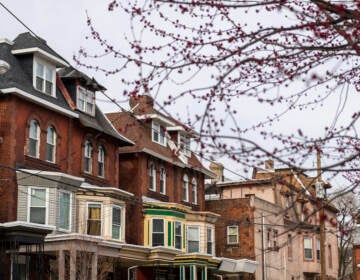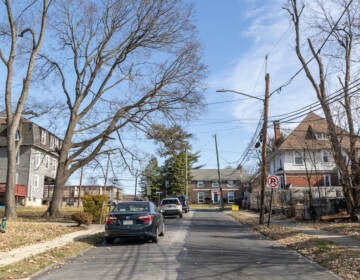Looking for a home in the Philly area this spring? Good luck
Prospective homebuyers still face an uphill battle finding a house in the Philly area. High prices and mortgage rates continue to be a burden.
Listen 9:34
Spencer Holm and his wife Sam rent an apartment in Media, Pa., and hope to one day buy a house in the area. (Kimberly Paynter/WHYY)
Have a question about Philly’s neighborhoods or the systems that shape them? PlanPhilly reporters want to hear from you! Ask us a question or send us a story idea you think we should cover.
When Spencer Holm graduated from Cornell University in 2016, he imagined a clear life trajectory with his wife, Samantha. The Radnor native expected to get a job, save up some money, buy a home and have kids.
“But now, that whole plan has kind of been thrown on its head,” he said.
For two years, the Greater Philadelphia area’s weak housing market has been unyielding for the couple. Holm, 32, said despite saving diligently, he and his wife don’t have enough to cover a down payment for a home in Bucks, Delaware and Montgomery counties or Philadelphia.
“We’ve just seen the prices go up and up and also the availability — houses come on the market and then they disappear really quickly. That’s been pretty frustrating. It feels like it’s moving at a pace that’s too fast for us,” said Holm, a law student.
Affording a typical home in Philadelphia’s collar counties has become more daunting over the past year. The median sale price of a starter home in the Montgomery County metro — which includes Bucks, Chester and Montgomery counties — is now $315,000, according to Redfin. First-time buyers today need to earn at least $75,849 annually to buy and keep a typical U.S. starter home. Four years ago, they would have needed roughly half as much.
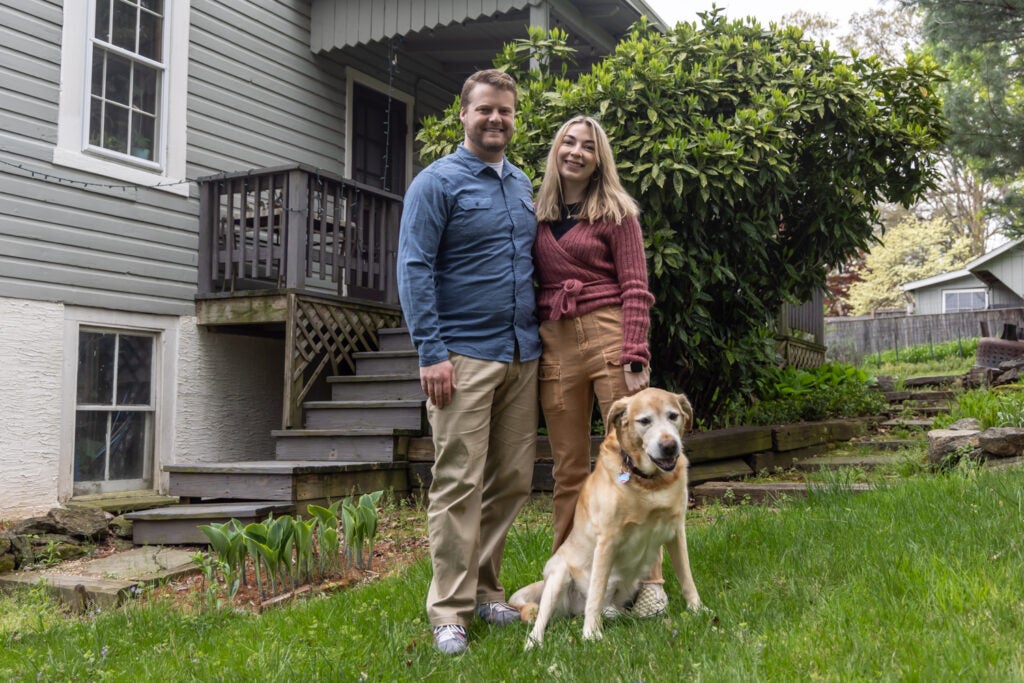
The Holms are now considering buying in New Jersey to be closer to family. They believe there might be more options in the neighboring state for slightly lower prices. However, New Jersey housing costs tend to be higher than in Pennsylvania. The couple may also just stay at their two-bedroom apartment in Media Borough, a quaint middle-class community in Delco.
“Maybe we’ll have to start a family in an apartment, while renting and kind of flip-flop those big life experiences,” he said.
Philly-area home buying market: ‘It’s not enticing’
Economists and real estate experts say high mortgage rates and overvalued home prices will continue to sideline first-time home buyers in the Philadelphia area in the coming months.
At the same time, Philly and its suburbs are experiencing an inventory crisis as homeowners continue to stay put instead of selling and buying a new property with a more expensive mortgage. The average rate for a 30-year fixed mortgage is hovering around 7% — the highest in over two decades and more than double the rate locked in by some homeowners who bought or refinanced during the pandemic.
Federal data shows there were 3,760 active listings in Philadelphia in March, compared to 4,469 in October 2023 and 5,084 in October 2022. Permits to build single-family homes have also declined, according to city data. Between 2021 and 2023, the total number of issued permits dropped by half — from 1,153 to 547.
In the Philly suburbs, the inventory is even tighter. It all means the spring home buying season, when there is typically a burst of activity, is expected to be sluggish for the second year in a row.
“It was bad last year, and it’s bad this year. No real improvement,” said Mark Zandi, chief economist at Moody’s Analytics.
Like the Holms, that reality may cause IT project manager Duane Taylor to pause his housing search or possibly relocate.
Taylor, 40, is looking for what many first-time homebuyers hope to find in Philly: a three-bedroom rowhome with one or two bathrooms and a small backyard. But when Taylor searches online, the results usually yield overpriced homes or homes located in an undesirable neighborhood — or both.
There also aren’t many options in his price range: $175,000 to $250,000.
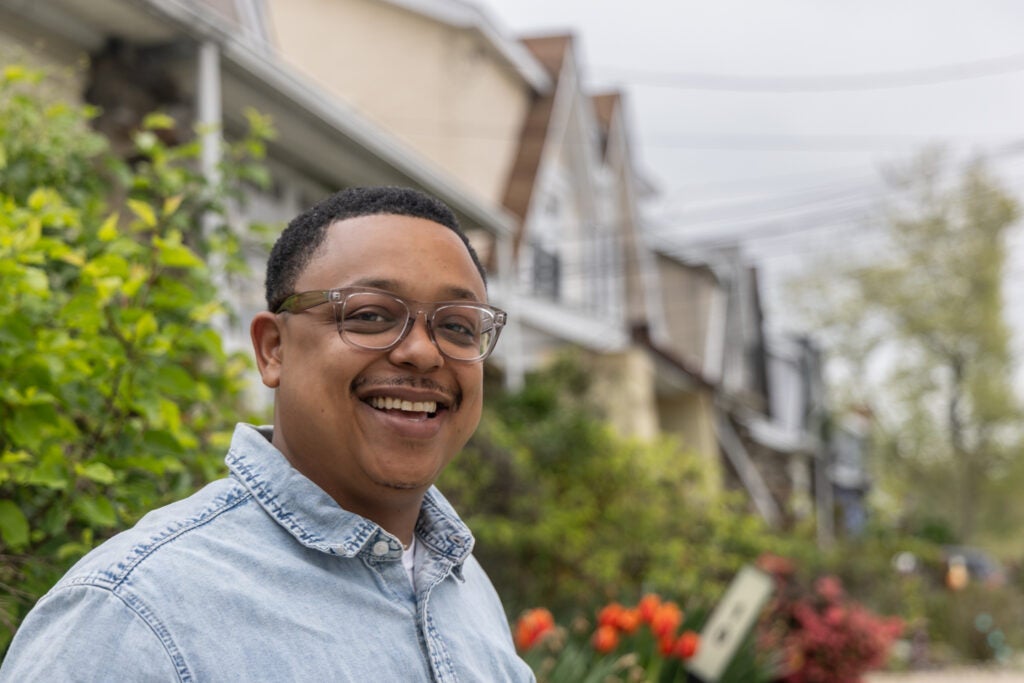
“If the list pops up with 113 options, 75% of them say pending,” said Taylor. “And then I’m finding that they’re overbidding.”
For now, Taylor is renting a house in Upper Darby, in nearby Delaware County. He’s tired of laying out for a place he doesn’t own, but he said it may make sense to stay put until the market improves. That way, he can hopefully find a home in his price range in a neighborhood where he’d want to put down roots.
Taylor has considered buying a place in Louisiana or South Carolina, where he often travels for work. Home prices in both states are generally cheaper than what he’s finding in the Philadelphia area. What’s stopping him is his 16-year-old son, who lives in the Philly area and has two years left before he graduates high school and heads to college.
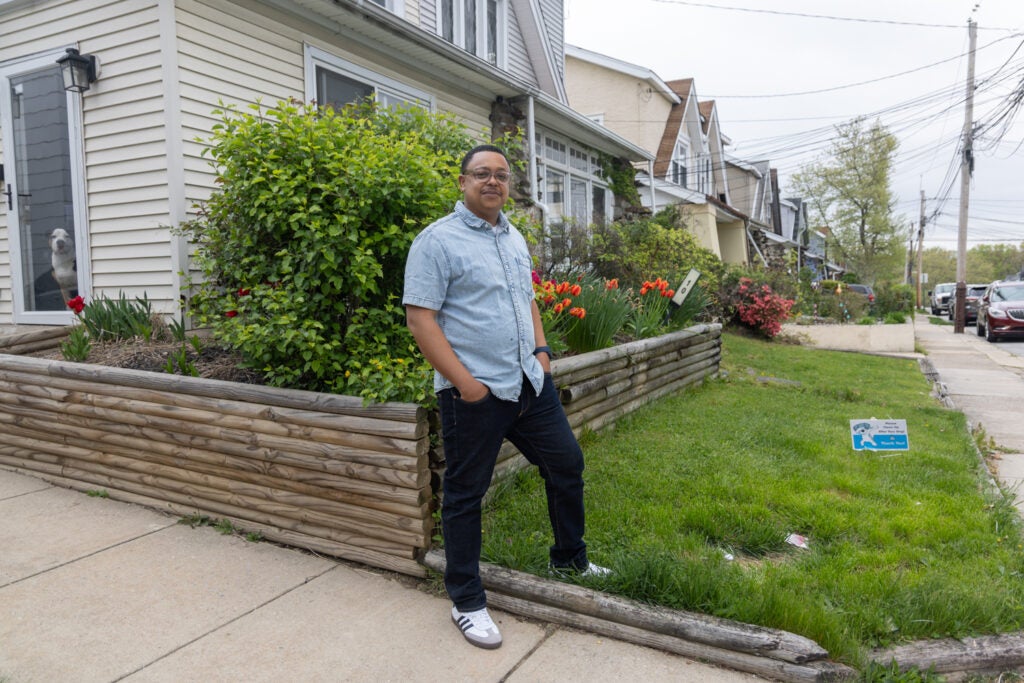
“Maybe I need to stick around for a couple more years. And that’s the part where I’m like, man, these prices are so high and is that an investment that I want?” Taylor said.
“It’s not enticing,” he said.
Pandemic-era mortgage rates are not coming back anytime soon
Veteran realtor Maria Quattrone likened this period to the Great Recession, when an inventory crisis created a seller’s market and increased home prices. That’s why she’s spending a lot more time on outreach these days — hoping to squeeze a sale from her 45,000-person database.
She’s working the phones, but also texting and emailing financing tips, market updates and news articles about real estate, among other things.
“You have to do more to get the same result. And if you want a better result you have to do two or three times as much,” said Quattrone, owner of RE/MAX@HOME.
Part of her message to prospective buyers and sellers is effectively a reality check. Mortgage rates during the height of the pandemic — which generally ranged from 2-4% — were an anomaly. And they’re not coming back, at least not anytime soon.
Quattrone said people also need some perspective. Between April 1971 and April 2024, 30-year fixed-rate mortgages averaged nearly 8%, according to Freddie Mac.
“It’s all relative,” said Quattrone.
Last month, Federal Reserve officials signaled they expect to cut interest rates three times this year and that more cuts could happen in 2025. Some real estate experts predict a potential drop in mortgage rates to somewhere around 6%. If that happens, and the economy is in decent shape, they say the housing market may start to come back to life.
The big caveat is that home prices aren’t expected to drop dramatically between now and then. Prices could even rise if rates go below 6% and competition floods the market. That means first-time homebuyers will still likely need to find ways to come up with a significant down payment if they want to leave renting behind.
That’s especially true in the Philly suburbs. In Villanova and Gladwyne, for example, the average home is now worth $1 million or more—four times more than in Philadelphia. Historically, Montgomery County’s smaller boroughs and townships were good places to find reasonably priced starter homes.
“I don’t think the market is going to come roaring back, but it’ll come back, and I sense that’s where we’ll be in the spring selling season of ‘25,” Zandi of Moody’s Analytics said.
That would be welcome news to mortgage lenders, many of whom have struggled to stay afloat over the last two years.
During that stretch, veteran broker Richie Frangiosa issued half as many residential mortgages in the Philadelphia metro, a drop he has rarely experienced during his 30-year career. The majority of his business is rooted in home loans.
Like Quattrone, the dynamics remind him of the 2008 financial crisis. Yet he’s optimistic things will improve in the near future. Some of that is the feeling he gets when he talks to colleagues in the industry. But he’s also starting to see more inventory coming online and sellers starting to ease up on asking prices, particularly in the Philly suburbs.
“We’re finally at a point where a lot of people that weren’t selling because they didn’t want a higher rate on whatever home they were going to purchase, have come to accept the new reality and are starting to put those homes on the market,” Frangiosa said.
Either way, affordability will likely continue to be an issue, particularly as communities in the Philadelphia area seek ways to maintain their mixed-income identities.
“We see small wins here and there,” said Scott France, executive director of the Montgomery County Planning Commission. “The goal is to increase that — make that happen more. Whether it’s inclusionary zoning for some new construction or preserving existing neighborhoods and helping out the older home housing stock, we have to look at every tool that we can find because it’s not laid out for us.”
5 things first-time homebuyers should consider
Here’s what Maria Quattrone, owner of RE/MAX@HOME and Matt Novatnack, with Nice Guy Realty, recommend:
- Don’t make any big purchases — nothing over $500. This includes signing a new lease. The number of months left on your lease is often part of a lender’s risk assessment. The more months left, the more exposure you have.
- Work with a qualified real estate agent who works in the business full-time for a well-established brand, and who has positive reviews and a lot of them.
- Ask your agent or lender for a breakdown of your estimated monthly payments at different price points. There isn’t always much difference between a $400,000 and a $410,000 mortgage payment.
- Ask your lender about state grant programs for closing cost assistance. The state has programs that will give $10,000 toward closing costs for qualified first-time home buyers.
- Be prepared to put in an offer the day you see a house. If you’re not, another buyer could snatch up the property. Along the same lines, make sure all of your paperwork is in order so you can move quickly, including tax returns, pay stubs and W2 forms.

Get daily updates from WHYY News!
WHYY is your source for fact-based, in-depth journalism and information. As a nonprofit organization, we rely on financial support from readers like you. Please give today.






